how to become a nurse anesthetist
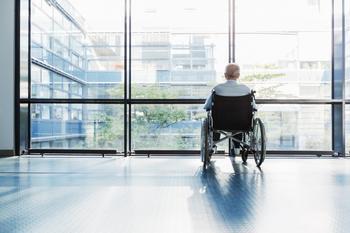
Illinois lawmakers consider tougher oversight of nursing homes
Legislation would mandate and enforce minimum staffing levels
Illinois is considering legislation to mandate and enforce minimum staffing requirements at nursing homes operating within the state.
The measure, the Nursing Home Residents' Quality of Care Initiative (SB 1510, SA #1), is the state's latest response to complaints about the care elderly residents are receiving. It's not a new issue. In 2016, the governor of Illinois signed a law allowing families to install electronic monitoring systems in residents' rooms.
At the time, the Illinois Department of Public Health reported receiving approximately 19,000 complaints of abuse and neglect by long-term care facilities each year. The sponsors of the proposed law say the situation hasn't improved.
"It has been both heartbreaking and motivating to me, through my work, to see how devastating it can be for an entire family when a loved one receives inadequate care in a nursing home," said Illinois State Sen. Jacqueline Collins, sponsor of the legislation.
Strict enforcement
Collins' bill calls for strict enforcement of the state's minimum staffing requirements, heightened public transparency of nursing home violations, and enhanced safeguards regarding psychotropic medications and a resident's right to informed consent.
"This initiative sets forth some much- needed measures to ensure that no family has to see their loved one suffer unnecessarily in a place where they are supposed to be cared for," Collins said.
In 2015, 39 percent of Illinois nursing homes received a low-quality rating from the Centers for Medicaid and Medicare Services. An AARP survey taken this year found 84 percent of Illinois voters supported legislation increasing the quality of nursing home care.
"Residents of nursing homes are some of Illinois' most frail whose care needs have unfortunately adjusted their life's path to need skilled nursing care 24 hours a day," said Ryan Gruenenfelder, director of Advocacy and Outreach for AARP Illinois. "Residents and their caregivers need to be able to trust nursing homes at a time when they are more vulnerable than they have ever been."
Public vs. private
A study last year by the University of Illinois at Chicago found differences in the care residents receive at publicly supported nursing homes and those in the for-profit category. The researchers found that residents of for-profit nursing homes were twice as likely to experience clinical signs of neglect compared with those in not-for-profit residencies.
"Those signs of neglect included severe dehydration in clients with feeding tubes which should have been managed, clients with stage three and four bed sores, broken catheters and feeding tubes, and clients whose medication for chronic conditions was not being managed properly," according to the researchers.
While Illinois has had its well-publicized issues with nursing homes, it may well be a national problem. In 2017, the state of Maryland sued a company operating five nursing homes within the state. Regulators claimed that about 1,000 residents were discharged into inadequate care so their places could be taken with higher-paying residents on Medicaid.
Illinois is considering legislation to mandate and enforce minimum staffing requirements at nursing homes operating within the state.
The measure, the Nursing Home Residents' Quality of Care Initiative (SB 1510, SA #1), is the state's latest response to complaints about the care elderly residents are receiving. It's not a new issue. In 2016, the governor of Illinois signed a law allowing families to install electronic monitoring systems in residents' rooms.
At the time, t...
Read less Read more
Recent Articles
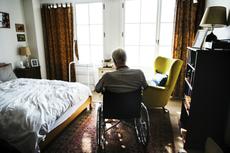
Neglect issues found to be more common among residents at for-profit nursing homes
A study shows neglect can take many forms
With nearly 1.5 million Americans residing in nursing homes, residents receiving the proper care should be the primary concern.
However, a new study conducted by researchers at the University of Illinois at Chicago compared the experiences of residents at for-profit nursing homes compared with those in not-for-profit nursing homes, and according to lead researcher Lee Friedman, the differences were significant.
The researchers found that those in for-profit nursing homes were twice as likely to experience clinical signs of neglect compared with those in not-for-profit residencies. As nearly 70 percent of nursing homes operate as for-profit businesses, this study proves to be wide-reaching.
"We saw more -- and more serious -- diagnoses among residents of for-profit facilities that were consistent with severe clinical signs of neglect, including severe dehydration in clients with feeding tubes which should have been managed, clients with stage three and four bed sores, broken catheters and feeding tubes, and clients whose medication for chronic conditions was not being managed properly," said Friedman.
A call for better care
When looking at the ways many residents' needs aren't tended to at some for-profit nursing homes, Friedman and his team worked to develop a scale that they could use to put numbers to the various conditions associated with clinical neglect. Using the Clinical Signs of Neglect Scale (CSNS), the researchers were able to quantify over two dozen conditions that range in severity.
With the scale in place, the researchers evaluated the medical records of over 1,100 patients who had visited one of five major Chicago hospitals between 2007 and 2011. All patients were aged 60 and older and were treated for issues associated with neglectful care.
The biggest discrepancy between the patients was where they had received the poor quality of care. Friedman and his colleagues found that those in for-profit facilities were more likely to have severe medical issues because of neglect when compared to those in not-for-profit residencies or those living in private homes or with family members.
Friedman believes this is because of the dynamic between employees in many for-profit institutions. He noted that the residents end up suffering because of the way the money is distributed at many of these institutions -- the higher ups get bigger paychecks, while the staff that cares for the residents are often underpaid. According to Friedman, this can lead to "low morale" among staff members, though the biggest burden ends up on the residents.
To help correct these issues, Friedman is calling for better care at these facilities, starting with more accountability and higher-quality training.
"More oversight of these facilities, both for-profit and not-for-profit, needs to occur together with improved screening and reporting of suspected cases of neglect by all parties," said Friedman. "There needs to be better staffing and training for enforcing these measures."
With nearly 1.5 million Americans residing in nursing homes, residents receiving the proper care should be the primary concern.However, a new study con...
Read less Read more

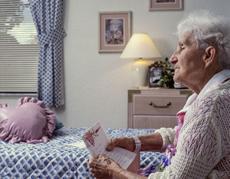

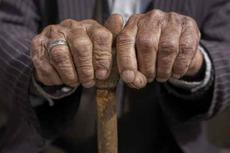
Quality of care is worse for obese, elderly consumers in nursing homes
Study shows that limited nursing home options may lead to worse overall care
As our loved ones grow older, sometimes hard decisions need to be made about what is the best living situation for their quality of life. While some families have the ability to take care of elderly relatives, limited space and amenities can often force consumers to consider nursing homes as an option.
But are these nursing homes providing the type of care that we should expect? While reviews on these facilities are mixed, a recent study has found that quality of care can decline drastically if your loved one is obese.
Not all nursing homes are equal
What many consumers may not realize is that not all nursing homes are equipped to handle residents who are obese. These individuals often require much more staff attention than non-obese members, usually because they may need help completing daily tasks that they can't do on their own.
The nursing homes may also need certain equipment to cater to obese members' needs, such as specialized beds or lifting equipment. These specifications can really limit the number of nursing home choices that obese, older consumers have to work with.
With this in mind, the researchers set out to see if there was any disparity in the quality of care between nursing homes that accepted obese individuals versus those who did not. Over the course of two years, they examined over 164,000 records of obese individuals over the age of 65 who were admitted to a nursing home. Quality of care was measured by the number of deficiency citations that each nursing home received.
Lower quality of care
After examining the data, the researchers concluded that nursing homes that admitted obese members had a lower overall quality of care. These facilities were most likely to have a higher number of deficiencies.
The statistics also revealed the degree of obesity had an impact on care. The researchers found that nursing homes that admitted members who were morbidly obese (having a BMI of 40 or more) were the most likely to have severe deficiencies in care.
The research team hopes that their work will raise awareness for the quality of care in nursing homes, as well as start the conversation on giving equal opportunity to obese, elderly consumers who are looking to gain access to a nursing home.
The full study has been published in the Journal of the American Geriatrics Society.
As our loved ones grow older, sometimes hard decisions need to be made about what is the best living situation for their quality of life. While some famili...
Read less Read more

States oppose pre-dispute arbitration clauses for nursing homes
Sixteen attorneys general claim these provisions are unfair to vulnerable consumers
When you sign a contract to enter a long-term care facility, the document often contains what is called a pre-dispute arbitration clause.
It means that right up front, you agree to let a third party settle any dispute that might arise, rather than resorting to a lawsuit.
The attorneys general from 16 states have sent a petition to the Centers for Medicare and Medicaid Services (CMS), strongly opposing pre-dispute arbitration clauses in long-term care facility contracts.
"While arbitration can be used to resolve such disputes, the decision to do so should not be taken out of the hands of consumers prior to a conflict arising," said Connecticut Attorney General George Jepsen. "The worst time for a vulnerable person or his or her family to decide the means to resolve potential future disputes is at the time of admission to a nursing home. It is simply unfair to ask someone in that difficult and delicate circumstance to enter a binding arbitration contract."
No time to weaken provisions
The state officials say consumer protection provisions of these contracts should be strengthened, not weakened. They contend that an individual entering a nursing home or other long-term care facility, or family members acting on their behalf, are often making a healthcare choice under stressful circumstances, making it difficult to be rational or informed when deciding the resolution of future disputes.
"Arbitration can be a preferred method of resolving disputes, but that decision should not be taken out of the hands of consumers long before a conflict is ever contemplated," said Maryland Attorney General Brian Frosh. "The worst time to provide a waiver of patient rights like this is when you or a loved one are going through the difficult process of entering a long-term care facility."
In their written comments, the attorneys general argued that pre-dispute binding arbitration agreements in general can be unfair to consumers, jeopardizing one of the fundamental rights of Americans – the right to be heard and seek judicial redress for our claims.
Not voluntary
"This is especially true when consumers are making the difficult decisions regarding the long-term care of loved ones," the attorneys general wrote. "These contractual provisions may be neither voluntary nor readily understandable for most consumers."
Connecticut and Maryland joined California, Delaware, Hawaii, Illinois, Iowa, Maine, Massachusetts, Minnesota, New York, Oregon, Rhode Island, Vermont, Washington, and the District of Columbia in submitting comments to CMS.
In recent years, courts have been chipping away at arbitration clauses in all sorts of consumer contracts, in particular banking and telecommunications.
In the case of nursing homes, the attorneys general say their position is consistent with that of the American Arbitration Association, which determined in 2003 that it would not administer healthcare arbitration between patients and service providers that related to medical services unless all parties agreed to arbitration after the dispute occurred.
When you sign a contract to enter a long-term care facility, the document often contains what is called a pre-dispute arbitration clause.It means that ...
Read less Read more

Illinois to allow electronic monitoring in nursing homes
State has received thousands of complaints from nursing home residents and their families
Stories of neglect and abuse of nursing home residents have become so common in recent years that Illinois has passed a law that allows families to install electronic monitoring systems in residents' rooms.
Illinois Gov. Bruce Rauner signed the new piece of legislation late last week. It takes effect January 1, 2016, and will make Illinois one of four states in the nation that explicitly allows for cameras in nursing homes.
"The Illinois Department of Public Health receives approximately 19,000 complaints of abuse and neglect against long-term care residents yearly," said Bob Gallo, AARP Illinois State Director. "AARP commends the General Assembly and Governor Rauner for their leadership on this issue and for helping to protect the state's most vulnerable residents."
Illinois Attorney General Lisa Madigan, who drafted the legislation and lobbied for passage, says it will give families much-needed peace of mind.
Peace of mind
"Deciding to place a loved one into a nursing facility is extremely difficult, and as Baby Boomers age, more families will be faced with that decision," said Madigan. "This law makes Illinois one of the first states in the nation to give families peace of mind by allowing them to monitor their loved one's care when they cannot be present."
Madigan said the legislation sprang from complaints her office received from nursing home residents and families who are concerned for their relatives' care and security. The new law allows residents of nursing homes and rehabilitation facilities or their family members to purchase and install video or audio monitoring devices in their rooms.
"The vast majority of Illinois' nursing homes provide high-quality services to their residents, but this law allows commonly used modern technology [to] add another layer of care," said Rep. Bob Harris, a co-sponsor of the legislation. "These recording devices will help families ensure that their loved ones are receiving respectful and compassionate care."
The new law stipulates that recordings are only to be used for civil, criminal, or administrative proceedings related to the health, safety, or welfare of a resident.
At residents' expense
Residents or their families must pay for the equipment and its installation. A resident or their guardian must consent to the use of a camera having the monitoring equipment in the resident's room. If a resident has a roommate, his or her consent is also required.
If monitoring equipment is installed, the facility manager must be notified and a sign placed on the door of the room stating: "This room is electronically monitored."
The law also provides protection to facility residents from any retaliation by facility staff. Staff could face criminal charges if they knowingly hamper, obstruct, or disable monitoring equipment.
Madigan has long cited an increasing need for additional safety measures at Illinois nursing homes as the state's population continues to age. At the moment, Illinois has more than 860 nursing home facilities with more than 76,000 residents.
Madigan said the Illinois Department of Public Health (IDPH) investigates approximately 5,000 complaints every year, the majority of which involve long-term care facilities. In 2013, the IDPH found 106 allegations of abuse, neglect, or misappropriation of property against residents by facility staff to be valid.
Stories of neglect and abuse of nursing home residents have become so common in recent years that Illinois has passed a law that allows families to install...
Read less Read more

Aging in place: technology may make it easier
With a little IT support, seniors may find they can remain in their homes longer
As people age and become infirm, either mentally or physically – or both – a nursing home is almost always the next step. But if you ask the senior population – and a number of polls have done exactly that – most prefer to remain in their homes.
The concept is called "aging in place," and it's gaining currency by the year. To meet this desire the home health care industry has enjoyed robust growth. In-home health care services have emerged as less expensive and a more personalized alternative to residential care facilities for seniors. The senior lives at home but is frequently visited by a health care professional, who checks up on them, making sure they are safe, eating well and taking their medication.
Technology tackles the problem
There have also been a number of technological innovations that have allowed the senior population to remain at home longer. Security firms offer emergency alert systems in which the senior wears a pendant with a button. Pushing the button will summon a security company operator or emergency services personnel.
But the senior in need of assistance must be conscious and have the ability to push the button. So engineers have been at working making that system less reliant on the user's participation.
To help solve that problem, electrical engineers at the University of Utah have produced a network of wireless senors that can detect when a person falls. It sounds like something out of "Mission Impossible" but the researchers say it could make a real difference in the lives of the elderly.
Falling can be deadly
Why? Because for people age 65 and older, falling is a leading cause of injury and death. Most of the current monitoring devices monitor a person's posture or require them to push a button to call for help. It also requires them to be wearing the pendant when they fall down. The system designed by Utah researchers works without the participation of the person being monitored.
"The idea of 'aging-in-place,' in which someone can avoid moving to a nursing home and live in their own home, is growing," said Neal Patwari, senior author of the study and associate professor of electrical and computer engineering at the University of Utah. "Ideally, the environment itself would be able to detect a fall and send an alert to a caregiver. What's remarkable about our system is that a person doesn't need to remember to wear a device."
The team says it plans to develop this technology into a commercial product through Patwari's Utah-based startup company, Xandem Technology. The study was funded by the National Science Foundation.
Science and technology hold the key
Other experts believe science and technology do, indeed, hold the key to people being able to remain in their homes, rather than move into residential care facilities. The Japanese government is taking the lead in encouraging companies to develop low-cost robots who can serve as in-home nursing aides.
The government earlier this year offered financial assistance for the development of machines that can provide very specific functions that would assist an elderly person and reduce the need for human assistance. The government specifies the need for a robot that can lift an elderly person, assist them in walking and keep track of patients with dementia, to keep them from wandering off.
In that last requirement, the Utah researchers say their product could be valuable.
"With this detection system, a person's location in a room or building can be pinpointed with high accuracy, eliminating the need to wear a device," said Brad Mager, a graduate student in electrical and computer engineering and first author of the study.
While technology works on the problem, the U.S. Centers for Disease Control and Prevention says simple logistical arrangements can aid seniors in their desire to age in place. The agency says it is important that senior have housing options that not only allow them to remain in their community, but include a safe and secure pedestrian environment, and near destinations such as libraries, stores, and places of worship.
As people age and become infirm, either mentally or physically – or both – a nursing home is almost always the next step. But if you ask the se...
Read less Read more
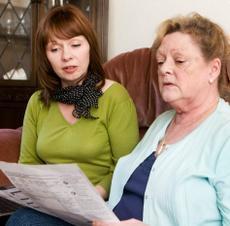
How to 'Have the Conversation' With An Older Parent
Aging expert advises to talk frankly about nursing home, end-of-life issues
Next to talking to your child about sex, probably the next most dreaded conversation is telling an aging parent you think they should move into a nursing home.
No one wants to do it because, not only is it unpleasant but it confronts a reality that most of us would rather avoid.
"The first time talking about this is going to be really, really hard because it's a painful subject to think about," said Gayle Doll, assistant professor in Kansas State University's College of Human Ecology and director of the Center on Aging. "However, it is also one of the most important conversations you can have."
Research at nursing homes
Doll is an expert on aging, having studied the subject through repeated visits to nursing homes where she talks with residents. She says in many cases, "the conversation" between parent and child isn't nearly as bad as it seems.
Doll found that many residents voluntarily chose to move into a retirement community that included a nursing home to protect their children from having to make the difficult and painful decision about caring for their parent.
"However, only a small percent of older adults are this forward-thinking, leaving many other families, especially now with an aging baby boomer population, to be involved in this important decision process," Doll said.
Don't put it off
Despite the fear and pain, Doll says the conversation should not be avoided. Otherwise, it sets up worse circumstances in the future.
"The most critical thing is to start this discussion before a crisis occurs," Doll said. "At the time of a crisis you're going to be looking at nursing homes and trying to make a decision. Without ample time, that decision may not be based on which home is the best, but rather which one has an opening. That's a factor nobody wants to have dictate a decision."
If you feel it's time for the conversation, here's what Doll suggests:
- Be honest and direct, beginning with the first conversation. "It won't be something easy to talk about, so that's why it's important to be direct," Doll said. "Say something like, 'I know we don't want to talk about this and I can't stand thinking about a time when our life can't be like it is now, but I want to make sure that when things change we do this the best way we can. The sooner we talk about this the easier it will be in the future and the more we'll get what we want from the situation when the time comes.'"
- Do not make unrealistic promises and promises that cannot be kept. "So often kids will say, 'I won't ever put you in a nursing home,'" Doll said. "Other times it may be the parent who will say something like, 'Kill me when the time comes' or 'Never put me in a nursing home.' Those are all such horrible things to say and may not be realistic."
- Make it an annual talk about the same time each year. "A lot can happen in a year, and it's common for people to change their mind a million times about something," Doll said. "By reassessing previous decisions on a frequent basis, you and your loved one can have the latest decision about what you want and don't want because those circumstances will have changed."
- Start discussing nursing home and end-of-life wishes earlier in life rather than later. Although these topics are affiliated more with older age, an unforeseen injury or crisis could happen, requiring an immediate decision, Doll said. Discussing these topics earlier in life will also help with addressing other difficult and complex issues in life.
- Do not assume that parents may have a stigma about discussing these topics. "In talking to groups of older adults I've found that they are much more comfortable talking about this subject than we may think," Doll said. "They read the obituaries and they have had friends who have died. The door is open to talk about it; they're just waiting for you to start the conversation."
Next to talking to your child about sex, probably the next most dreaded conversation is telling an aging parent you think they should move into a nursing h...
Read less Read more
Marginal Nursing Home Options for Poor
Study of ZIP codes shows vulnerability of facilities
Nursing homes in the poorest ZIP codes in the country are twice as likely to close as the richest ones, giving residents -- particularly minorities -- fewer choices for long term care.
Overall, the United States lost five percent, or 96,902, of its total nursing home beds between 1999 and 2008, as patients with means sought assisted living or other forms of home and community-based care instead.
Nursing homes were also 1.38 times more likely to close in the most predominantly black ZIP codes than in ZIP codes with the lowest representation of blacks, and 1.37 times as likely to close in the most predominantly Hispanic ZIP codes than in the least Hispanic areas.
The research is reported in the journal Archives of Internal Medicine.
Long-term issue
"This is an issue that is not going to go away, precisely because of the aging of the population and the increasing bifurcation of society into rich and poor," says Vince Mor, professor of community health at Brown University.
Researchers, led by Zhanlian Feng, assistant professor of community health, say in the future people in poor urban neighborhoods will have to travel significantly farther to a nursing home. In ZIP codes where at least one nursing home closed during the decade, the shortest distance to another home increased to 3.81 miles from 2.73 miles.
"The further the patient is from their neighborhood, the more difficult it is for their family members and their neighbors to come visit them," Mor says.
Vulnerability
In the study period, most nursing homes, whether freestanding or on hospital campuses, in rich neighborhoods and poor ones, have become more economically vulnerable. Homes that depend on Medicare and Medicaid for most or all of their revenue -- for instance those serving poor patients -- have suffered the most pressure.
When money becomes tight, especially at a somewhat inefficiently run home, quality of care declines, sometimes to the point where officials must consider shutting it down.
"This leads to a moral dilemma," Mor says. "If the local nursing home is closed because their quality is so poor, that's good, but the cost of that closure is disproportionately borne by a community. How much do you invest in a failing facility and how do you make that investment without rewarding a bad actor who runs a lousy place?"
Alternatives
If finding new money for nursing homes is not the entire answer for preserving access for the poor to long-term care, another option is to shift more money toward alternatives like assisted living, home-based care and community-based care, Mor says.
The new health care law and a system of waivers within Medicaid encourage states to do just that, but they are not targeted specifically to helping the urban poor or minorities, and they are optional programs. By contrast, reimbursements for nursing home care are legally required.
"Given the current budget environment, it is really uncertain how sustainable these alternatives will be," says Feng. "Nursing homes are generally perceived as a last resort," he says, but for millions of Americans desirable options in that undesired choice continue to decline.
The study was funded in part by the National Institute on Aging.
Marginal Nursing Home Options for Poor Study of ZIP codes shows vulnerability of facilities ...
Read less Read more
Maryland Settles Suit Over Nursing Home Payments
State begins paying restitution to nursing homes and their patients
Maryland has begun paying restitution to nursing homes and their residents in satisfaction of a lawsuit alleging that the state wrongly determined that certain patients could foot their own bills.
The lawsuit, filed in August 2005, alleged that the state's Department of Health and Mental Hygiene erroneously concluded that nursing home residents could afford co-payments for their care. That determination failed to take into account the debt that patients accrued while waiting to be approved for Medicaid coverage, according to the suit. Federal and state law requires states to consider patients' debt when calculating their income.
The payments, which will total $16 million, make the settlement the second largest in Maryland history among those where the state is the defendant, according to the plaintiffs' attorneys. Maryland will provide $8 million of the settlement funds, with the federal government paying the other half. The lawyers originally contended that the state owed $64 million for incorrect calculations made since 2002.
A similar suit filed against Washington, D.C. was also settled, with the city agreeing to to abide by the law in the future. The plaintiffs in that suit were not awarded damages.
Settlement could serve as model for other states
This is a great day for Maryland and Washington, DC citizens who need nursing home care but can't afford to pay for it, as well as the nursing homes who have provided that care for years without payment, Cy Smith, an attorney for the plaintiffs, said in a statement. We have succeeded in bringing Maryland and the District into compliance with federal law for the benefit of their neediest citizens, both now and for the future.
Smith told The Baltimore Sun that his firm is starting to send checks to nursing homes now. He said the suit wipes out a lot of debt for the class.
Ron Landsman, co-counsel on the case, said that the settlement ends three decades in which Maryland shirked its obligations under the Medicaid statute.
The state similarly expressed satisfaction with the outcome.
We think that things are pretty well resolved, John Folkemer, Maryland's deputy secretary for health-care financing, told The Washington Post. When someone is in a nursing home not only do you have to recognize what their obligations are, you have to recognize some of the debts they owe.
The class includes 12,000 nursing home residents and over 300 nursing facilities.
The settlement could serve as precedent for other states that fail to take patients' old debt into account when determining their Medicaid eligibility.
Consumers can obtain information at the official settlement website
Maryland Settles Suit Over Nursing Home Payments...
Read less Read more
New York Nursing Home Aide Convicted of Rape
A former aide at a New York nursing home has been found guilty of raping and sexually assaulting a 90-year-old resident of the nursing home. A jury convicted William Morrison, 46, of Utica, of three felonies after a five-day trial conducted before Judge Michael L. Dwyer in Oneida County Court. Morrison was found guilty of Rape in the First Degree, a class B felony, Sexual Abuse in the First Degree, a class D felony, and Endangering the Welfare of a Vulnerable Elderly Person, a class E felony.
Morrison had been employed by Rome Memorial Hospital, in Rome, New York, for several months before he transferred to hospital's affiliated 80-bed nursing home. The crime was committed approximately two weeks after that transfer.
When Morrison began to work at the nursing home, the home sought to perform a criminal background check, but that process had not been completed before Morrison raped the elderly resident, prosecutors said. Such a background check would have revealed that Morrison had previously been convicted of one felony drug offense in 1992 and several misdemeanors in the 1990s. His last conviction was for a misdemeanor drug offense in 1999.
"This horrific crime illustrates how important it is for nursing homes to secure criminal history checks before allowing individuals to care for their residents," said New York Attorney General Andrew Cuomo. "Had the nursing home known of Morrison's criminal history, it is possible that this nightmarish crime might have been avoided. We are continuing to examine whether my office should take any action against the home."
New York Nursing Home Aide Convicted of Rape...
Read less Read more
Nursing Home Operators Indicted on Fraud Charges
A Massachusetts grand jury has indicted three people on charges of massive fraud in the operation of five nursing homes in the state.
Brothers Joel K. Logan, of Norwell, and Todd Logan of Braintree, Massachusetts are charged with patient neglect, Medicaid Fraud, theft of nursing home patients' personal funds, conspiracy to steal those funds, and with embezzlement of employee wage deductions intended for funding 401(k) retirement contributions, and life and disability insurance premiums.
Their nephew, Gregory J. Logan, of Kingston, Massachusetts, who served as the administrator for one of the nursing homes, has also been charged with conspiracy and with embezzlement of residents' funds.
The indictments follow a three-year investigation conducted by the state's Medicaid Fraud Control Unit and the Fair Labor and Business Practices Division, both part of the Massachusetts Attorney General's Business and Labor Protection Bureau, along with assistance from the U.S. Department of Labor's Employee Benefits Security Administration.
A Norfolk County Grand Jury returned a total of 26 indictments against Joel, Todd, and Gregory Logan, and the former nursing home facilities. The facilities involved include: Elihu White Nursing & Rehabilitation Center, formerly of Braintree, Pond Meadow Healthcare Facility, Inc., formerly of Weymouth, Atrium Nursing and Rehabilitation Center, formerly of Middleborough, Logan Nursing & Rehabilitation Center, formerly of Braintree, and Crestview Healthcare Facility, Inc., formerly of Quincy.
The charges stem from allegations that, during January 2001 through June 2003, the Logans, and their corporations, diverted funds received under the state's Medicaid program for their own personal use while failing to provide basic goods and services which, as Medicaid providers, they were required to provide to the facilities' residents.
State officials said the investigation determined that the facilities frequently experienced shortages of food, medicine, linens, and personal hygiene items, interruption of pest control services, and accumulation of medical waste, due to nonpayment of vendors, while at the same time the defendants used the nursing home facilities' assets to fund various personal expenditures, including horse racing activities and luxury boat payments.
The Medicaid Fraud Unit's investigation additionally determined that on multiple occasions during May 10, 2002 through January 10, 2003, Joel, Todd and Gregory Logan removed a total of $82,000 from the Patients Needs Accounts ("PNA") for three of the homes, Pond Meadow, Elihu White, and Logan Nursing & Rehabilitation, for purposes unrelated to the residents' own use. PNA accounts are statutorily regulated accounts held in trust for the sole personal use and benefit of nursing home residents.
Massachusetts Medicaid regulations specify that a nursing home facility may not use PNA funds for any purposes other than the personal use of the nursing home residents, under any circumstances.
The indictments also allege that during July 2002, and during November 2002 through June 2003, Joel and Todd Logan failed to remit approximately $55,000 in deductions withheld from employee wages for the purpose of funding the employer-sponsored 401(k) Plan, a type of investment plan where eligible employees may establish individual retirement accounts.
In total, approximately 25 plan participants were affected, excluding approximately 20 Logan family members and corporate insiders. Additionally, during August 30, 2002 through June 6, 2003, the indictments charge that Joel and Todd Logan failed to remit $22,583.64 in employee wage withholding intended to fund short-term disability policies through Colonial Life Insurance, and individual life insurance policies with Boston Mutual.
Four of the nursing homes were forced into receivership during June 2003, and the fifth nursing home, Crestview, went into receivership a year later, during July 2004, based on allegations of financial mismanagement. Each of the nursing homes was either sold-off to other nursing home operators or were closed by the court-appointed receiver.
The indictments come on the heels of $560,000 in judgments obtained by the Attorney General's Office in June against four of the nursing home owners for contempt penalties, receivership costs, and attorneys' fees incurred in investigating and prosecuting a contempt case.
Nursing Home Operators Indicted on Fraud Charges...
Read less Read more
how to become a nurse anesthetist
Source: https://www.consumeraffairs.com/nursing-home-news
Posted by: nelsontherip.blogspot.com

0 Response to "how to become a nurse anesthetist"
Post a Comment